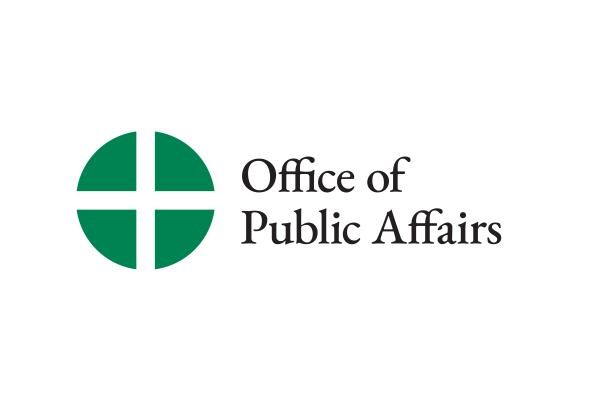Catholic, Muslim Leaders Celebrate Past Accomplishments, Pledge Continued Support in Public Square at National Gathering
WASHINGTON—LeadingCatholic and Muslim scholars and religious leaders convened a national plenary atthe Catholic Theological Union in Chicago, October 3-5. Participants from thethree regional Catholic-Muslim dialogues sponsored by the U.S. Conference ofCatholic Bishops (USCCB) celebrated the work and
WASHINGTON—LeadingCatholic and Muslim scholars and religious leaders convened a national plenary atthe Catholic Theological Union in Chicago, October 3-5. Participants from thethree regional Catholic-Muslim dialogues sponsored by the U.S. Conference ofCatholic Bishops (USCCB) celebrated the work and public impact of thedialogues, received formal updates on the status of regional projects, and voiceda future vision for the dialogues.
Inhis opening address, retired Archbishop Alexander Brunett of Seattle presenteda narrative of the dialogues, praised the solidarity and friendship of theparticipants, especially following the events of 9/11, and urged his listenersto cooperate on projects of common concern in the public square. ReferencingPope John Paul II's address to Muslim youth in Morroco, he urged the audiencenever to lose sight of the fact that, despite the differences between religions,the unity of the human community is the more fundamental reality. In service tothis unity, Catholic and Muslim leaders must advance dialogue by approaching itas a spiritual exercise that requires the cultivation of virtues, especiallymeekness, humility, and trust.
Inresponse, Sayyid Syeed, Ph.D., of the Islamic Society of North America (ISNA)remarked that if the last millennium witnessed to the spilling of blood, thisnew period of emerging multiculturalism is an opportunity for theCatholic-Muslim dialogue in the United States to lead the way as a witness of harmony andpeaceful coexistence.
A panel delivered commentary on the present status andfuture hopes of the dialogues. The co-chairs of the Mid-Atlantic dialogue, auxiliaryBishop Denis Madden of Baltimore (who also chairs the USCCB Committee onEcumenical and Interreligious Affairs) and Talat Sultan, Ph.D., of the IslamicCircle of North America (ICNA) expressed gratitude to the dialogue participantsfor their work on the defense of family, marriage and interreligious education.Both leaders interpreted these works as important contributions to the formationof individual conscience, especially among the young.
Midwestco-chair Syeed remarked that the work of these regional dialogues is conveyedto the international Muslim community and thus serves to promote greaterunderstanding and peace between Muslims and Christians around the world. HisCatholic counterpart, auxiliary Bishop Francis Reiss of Detroit, emphasizedthis point by remarking that the reality of multiculturalism in society entailsthat "we live in a moment in history that is significantly and profoundlyunique," to the extent that Muslims and Catholics can show the world how tolive in peace and harmony with persons of different religious affiliation.
WestCoast co-chair, retired Bishop Carlos Sevilla, S.J. of Yakima, Washington,encouraged dialogue participants to "cast our nets wider, so as to include inour work a wider audience, especially the youth." His Muslim co-chair, MuzammilSiddiqi, Ph.D., of the Fiqh Council of North America, urged the participants toconsider publishing to a wider audience, generating more joint statements, andexpanding the Catholic-Muslim network through the enhanced use of technology.
Theplenary keynote addresses were delivered by scholars Jamal Badawi, Ph.D., and JesuitFather Tom Michel, Ph.D. Speaking to the plenary theme of living our faithstogether, Badawi drew attention to the role of language, specificallytranslation of religious texts and the dissemination of opinion based onparticular translations, in determining the possibility and extent of harmonyand/or tension between Muslims and Christians. Father Michel, whose address washighlighted by reflections from his experience living abroad in Muslim majoritycountries, argued that effective and truthful dialogue requires faithfulness toone's tradition. "Muslims must glory in theprophethood of Muhammad and the Qur'anic message that hebrought," he said, "just as Christians must glory in the cross of Jesus Christand our faith in what God has accomplished in him for all humankind." But, hecontinued, this faithfulness need not lead to enmity but rather mutualaffection and encouragement since, "we worship and confess the same God."
---
Keywords:Catholic-Muslim dialogues, USCCB, Secretariat of Ecumenical and InterreligiousAffairs, SEIA, U.S. bishops, U.S. Conference of Catholic Bishops, ArchbishopAlexander Brunett, Bishop Denis Madden, Sayyid Syeed, Ph.D., of the IslamicSociety of North America
# # # # #
Media Contact Only:Don ClemmerO: 202-541-3200Email
